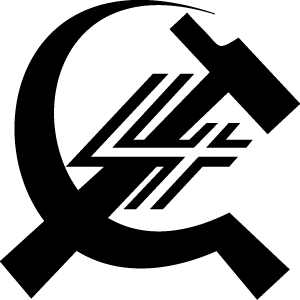Defending the self-organization of the exploited and oppressed, towards the abolition of capitalism and the building of ecosocialism, the Fourth International brings together organizations convinced that this is not possible without a root and branch, revolutionary, transformation of society.
Its founding principles are those of the best classical Marxist tradition: democracy “the emancipation of the workers will be the work of the workers themselves”, and internationalism, “socialism will be international, or it will not exist.” In our 1985 resolution we formulated these principles for our epoch.
The FI is present in the five continents, with organizations in more than 40 countries. Its activists participate in the class struggle, building social movements and parties in order to advance a revolutionary and emancipatory project for the 21st Century.
It functions as a democratic political current, with World Congresses every 7-8 years, and elected and accountable leadership bodies, the International Committee (political leadership) and Executive Bureau.
The FI has an international research and education institute in Amsterdam, which also sponsors sessions in Asia, providing political education with yearly intensive schools for activists of all ages. The IIRE also organizes seminars on ecology, the women's movement, economy, anti-racism, LGTBIQ struggles and others, bringing together the experiences of activists from across the globe to deepen our analysis on these questions and strengthen our collective practice.
The Fourth International holds a yearly International Revolutionary Youth Camp, self-organized by the youth organizations of its European sections, and held in a different European country every year.
Some History
The Fourth International was founded in 1938 by Leon Trotsky and other revolutionary militants, in opposition both to the despotic Stalinist bureaucracy that had betrayed and destroyed the revolutionary dynamic unleashed by the October revolution of 1917 – both within Russia and internationally –, and to capitalism in all its variants, whether liberal-democratic, authoritarian or neo-fascist.
Due to harsh defeats and terrible militant losses (both in Stalinist USSR, in China and Indochina and in the European antifascist resistance), but also to dire isolation and the complexity of the world that emerged from World War II, the Fourth International went through several splits during the 1940s and 1950s, but was for the most part reunified in 1963 on the basis of a common understanding of the new dynamics of the three sectors of the world revolution: anti-bureaucratic upsurges in the Eastern bloc, a renewed radicalization of youth and the working class in the advanced capitalist countries, and anti-colonial and anti-imperialist uprisings in the so-called third world. The reunified current that resulted is still called “Unified Secretariat” by some after the leadership body that was formed at the time.
In the 1960s and 1970s, the FI and its sections participated in the worldwide wave of struggles, promoting the radicalization and self-organization of youth, workers and women, opposing colonial and imperialist wars, in Algeria, in Vietnam and in solidarity with the Cuban revolution. This, notably in the May-June 1968 upsurge in France, helped our current to understand the importance of youth struggles and led us to converge in many countries with the new radical vanguards of the time, to root and broaden our membership. Through that process the FI renewed itself, incorporating the new experiences of the mass movements, and understanding the need to develop the struggle against the different specific oppressions and class struggle into a shared revolutionary project.
The capitalist restoration in the European Eastern bloc, China and Vietnam, the capitalist offensive against workers on a world scale, the deepening of the ecological crisis and the so-called “end of history” in the 1990s pushed us to the need to build new political forces useful to the class struggle. Ther was an urgent need to strengthen our contribution to the renewal of Marxism and to develop our reflection on an anticapitalist programme and revolutionary strategy. We have since contributed, through dialogue with other currents of the left, to the formation of new parties broader than our sections in different countries of the world, and many of our militants are members of broad organizations, parties and coalitions.
The 21st Century
During the 2000s FI activists were fully involved in the alter-globalization movement, helping to organize it internationally and to bring together activists from different perspectives. Today its activists in the feminist movements, ecological movements, anti-racist movements, LGBTIQ movements, workplace struggles and workers’ movements, continue to seek to build the struggles, and develop unity and internationalism and international cooperation to achieve immediate gains and develop a radical anti-capitalist consciousness.
The Fourth International seeks to learn from its participation in the social movements to enrich and develop its programme, notably adopting programmatic documents on women’s liberation, LGBTIQ liberation and ecological struggles. In 2010, the FI defined itself as Ecosocialist as the concentrated expression of the common struggle against the exploitation of human labour and the destruction of the planet by capitalism.
The current ongoing multidimensional crisis, starting with the 2007-2009 economic crisis and continuing with the mass mobilizations since 2011, and the more and more urgent global ecological and health crisis, reinforces our conviction that an international organization like ours is an essential tool in order to build an alternative to the cruelty and short-sightedness of the existing capitalist order.
